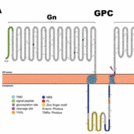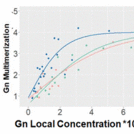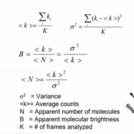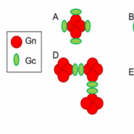THE CHRONICLES OF PROTEIN – PROTEIN INTERACTIONS IN HANTA VIRUSES INFECTED CELLS
Hantaviruses (HVs) are a group of pathogenic zoonotic diseases that are spreading from the excreta and urine of rodents to humans via aerosol transmission. HVs are classified geographically as Old World (OWHV) and New World (NWHV) Hantaviruses. OWHV, observed in Asia and Europe, results in hemorrhagic fever with renal syndrome (HFRS) and has a mortality rate up to 10 %. NWHV, observed in the Americas affects the cardiopulmonary system and has higher mortality rate up to 40 %.
Our primary focus is on understanding the Protein-Protein Interactions (PPI) in the context of HV infection and elucidating the mechanisms behind viral assembly. To this purpose, we use methods from the fluorescence fluctuation spectroscopy (FFS) family, such as single & multi-color Number and Brightness (N&B) and fluorescence correlation spectroscopy (FCS). FFS analyzes the fluctuations caused e.g. by the movement of the fluorescent molecules in and out of the confocal volume. The measured signal provides important biophysical parameters such as diffusion time, dissociation constant, multimerization etc.
Our preliminary work focused on aspects of the spike glycoprotein assembly. Using quantitative fluorescence techniques, we manage to extract the oligomerization values of the GPs in a cell or an organelle of interest over a large concentration range . This allows us to understand PPIs at cellular resolution, which is otherwise difficult to analyze using traditional biochemical methods such as Western Blotting. Our approach allowed for the quantitative proof on the importance of Gn:Gc subunit interaction that organizes the formation of the overall spike GP assembly.
We are currently working on understanding plasma membrane (PM) localization of HV GPs.
Funding:
Our research project is funded by the German Research Foundation.
Collaboration:
PhD Nicole D. Tischler (Fundación Ciencia & Vida, Laboratorio de Virología Molecular, Santiago, Chile; Universidad San Sebastián, Santiago, Chile)
Dr. rer. nat. Roland Schwarzer (University Hospital Essen, Institute for Translational HIV Research, Mechanisms of Viral Persistance - Lab, Essen, Germany)




